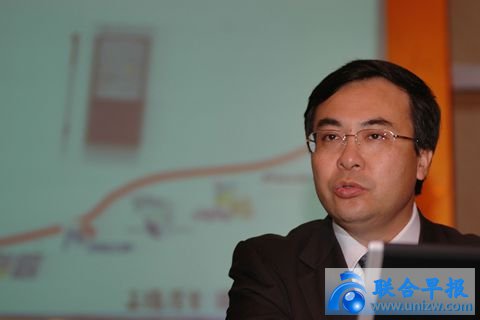
Ten months after being promoted from the deputy general manager of China Mobile to the general manager of China Telecom, Liu Aili left the telecommunications system.On July 19, Liu Aili, the general manager and deputy secretary of the party group of China Telecom, was transferred to the general manager and secretary of the party group of China Post.Li Guohua, the former general manager and party secretary of China Post, was appointed as the general manager of China Unicom.
Prior to that, on July 10, Lu Yimin, who had worked in China Unicom for 11 years, had been transferred to the general manager of China General Motors.
Liu Aili was transferred from China Mobile to China Telecom in September 2017.Liu Aili, 55 years old (born in 1963), is a native of Laizhou, Shandong. He graduated from Heilongjiang Post and Telecommunications School with a master's degree in information management and a doctorate in business administration. He is a professor-level senior engineer.
Liu Aili has been immersed in the mobile communication system for many years. He worked in Shandong in his early years. He successively served as the director of Shandong Provincial Mobile Communication Bureau, the deputy general manager of Shandong Mobile Communication Company, the chairman and general manager of China Mobile Shandong Co., Ltd.The company and the CMPak subsidiary in Pakistan served as leaders.
Liu Aili's highest position in China Mobile is the group's deputy general manager and deputy secretary of the party group.According to public information, Liu Aili is mainly in charge of the company's planning and construction, human resources and other work. He joined the company's board of directors in 2006;In September 2017, Liu Aili took over from Yang Xiaowei, the deputy director of the Central Cyberspace Administration of China, as the general manager and deputy secretary of the party group of China Telecom.
Liu Aili is well-known in the telecommunications industry for his ability and outspokenness.In June, Liu Aili, then the general manager of China Telecom, spoke bluntly about the difficulties faced by operators at the 2018 World Mobile Congress.The value dropped once to describe the remarks of users switching to the Internet, which resonated in the industry.
Li Guohua, who was transferred to the general manager of China Unicom, is 58 years old (born in March 1960), from De'an, Jiangxi Province. He graduated from Jiangxi Post and Telecommunications School and is a senior economist.In his early years, he worked in the post and telecommunications system of Jiangxi Province for more than ten years. In 1998, when the post and telecommunications were separated, Li Guohua entered the post system; in July 2005, Li Guohua became the deputy director of the State Post Bureau.
Li Guohua has worked in China Post Group Corporation (hereinafter referred to as China Post) for nearly 12 years.In November 2006, Li Guohua joined China Post as the deputy general manager of the group. In September 2011, he was promoted to the general manager of the group.Served as Secretary of the Party Leadership Group of China Post.He is also a member of the 12th National Committee of the Chinese People's Political Consultative Conference.
China Post is a wholly-owned enterprise of the Ministry of Finance. Its main businesses include postal universal services, financial services, and express delivery services. It owns listed companies China Postal Savings Bank (1658.HK) and Xiangyou Technology (600476.SH).The rating report shows that by the end of 2017, China Post had total assets of 9,263.678 billion yuan, 54,000 service offices, and 39,798 offices of Postal Savings Bank.In 2017, the operating income was 382.875 billion yuan and the net profit was 48.258 billion yuan.In 2017, it ranked 119th in the world's top 500 companies.
China Unicom and China Telecom are both state-owned holding companies directly under the State-owned Assets Supervision and Administration Commission.In August 2017, China Unicom A-share company (600050.SH) introduced 14 strategic investors including Tencent, Alibaba, Baidu, etc., and injected 75 billion yuan at the level of China Unicom's wholly-owned subsidiary.Benefiting from the mixed reform, China Unicom's net profit in 2017 increased by 192.5% year-on-year to 1.828 billion yuan; in the first quarter of 2018, China Unicom's net profit was 2.985 billion yuan, a year-on-year increase of 260.9%.
As of the first quarter of 2018, China Unicom's total assets were 574.65 billion yuan, and China Telecom's total assets were 655.866 billion yuan.As of May 2018, China Unicom's mobile subscribers totaled nearly 300 million, and its fixed-line broadband subscribers totaled 78.619 million;
China Telecom's mobile subscribers totaled 276.13 million, and its fixed-line broadband subscribers reached 139.28 million.
In the early years of China, the post and telecommunications business was mixed, and it was not until 1998 that the post and telecommunications were separated.In the previous wave of coaching changes, it was more common for telecom operators to exchange first and second leaders, but it was rare for postal services.For example, in 2015, Shang Bing, the former vice minister of the Ministry of Industry and Information Technology, became the chairman of China Mobile, and Chang Xiaobing, the former chairman of China Unicom, switched with Wang Xiaochu, the former chairman of China Telecom.Telecom top leaders exchanged.■



